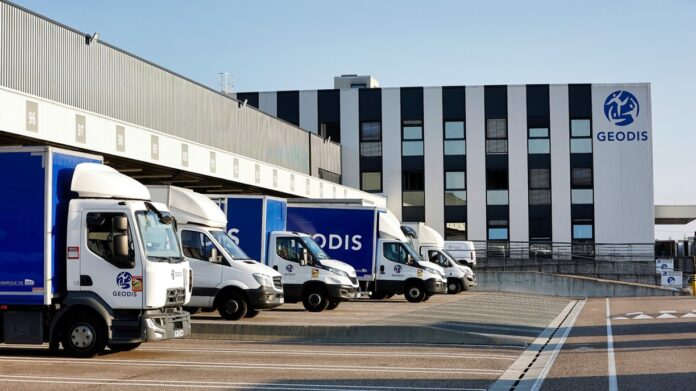
GEODIS, a global leader in transport and logistics, has received approval from the Science Based Targets initiative (SBTi) for its near-term science-based emission reduction targets. This validation confirms that GEODIS’s strategy aligns with the Paris Agreement’s goal of limiting global warming to 1.5°C.
GEODIS has committed to the following emissions reduction targets:
- Scope 1 and 2: 42% absolute reduction in greenhouse gas (GHG) emissions from energy consumption by 2030 (from a 2022 base year).
- Scope 3:
- 25% absolute reduction in GHG emissions from fuel and energy-related activities not included in Scope 1 and 2 by 2030.
- 25% intensity reduction in GHG emissions per tonne-kilometre (tkm) from subcontracted container shipping, road, and rail operations, covering upstream transportation and distribution.
- 25% absolute reduction in Scope 3 GHG emissions from upstream air transportation.
- 42% absolute reduction in GHG emissions from the use of sold products.
These targets reflect GEODIS’ comprehensive strategy to drive decarbonization across all business areas and regions. The company’s expertise, strategic partnerships, innovation, and commitment to continuous improvement are key enablers of this strategy.
“Receiving this validation from the SBTi reinforces our determination to contribute meaningfully to the fight against climate change,” said Marie-Christine Lombard, CEO of GEODIS. “Sustainability is at the heart of our long-term strategy, and we believe that our social and environmental commitment will benefit not only our operations but also the customers, partners, and communities we serve.”
Decarbonization Pathways and Initiatives
GEODIS has outlined clear decarbonization pathways for each line of business, with a focus on transitioning its fleet to alternative energy sources and collaborating with partners who share similar sustainability goals. This includes accelerating the adoption of electric vehicles, and bio-sourced fuels, and developing the necessary infrastructure to support these changes.
“In addition to transforming our own fleet, we are committed to reducing emissions across all forms of transport in our operations,” said Virginie Delcroix, Executive Vice President of Sustainability at GEODIS. “By using the best transport mode combination, increasing the use of sustainable marine and aviation fuels, and optimizing the efficiency of all transport resources, we support our customers in meeting their own climate goals.”
GEODIS’ climate action extends beyond fleet decarbonization, encompassing an ambitious plan to reduce carbon emissions at company sites by 2030. This includes targeting a 40% improvement in energy efficiency and ensuring that at least 90% of energy used comes from low-carbon sources.
To ensure the success of these initiatives, GEODIS leverages digital tools to optimize routing, loading, and energy efficiency. The company also conducts awareness campaigns to educate its teams on climate-related issues and has integrated climate-related criteria into senior executives’ variable compensation.
Through these comprehensive measures, GEODIS demonstrates its commitment to addressing climate change and contributing to international efforts to reduce global emissions.
อัพเดตข่าวสารและบทความที่น่าสนใจในอุตสาหกรรมโลจิสติกส์ก่อนใคร ผ่าน Line Official Account @Logistics Mananger เพียงเพิ่มเราเป็นเพื่อน @Logistics Manager หรือคลิกที่นี่















